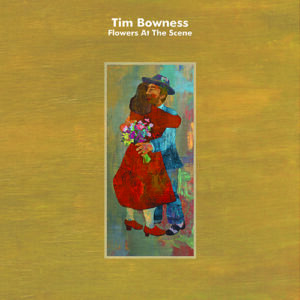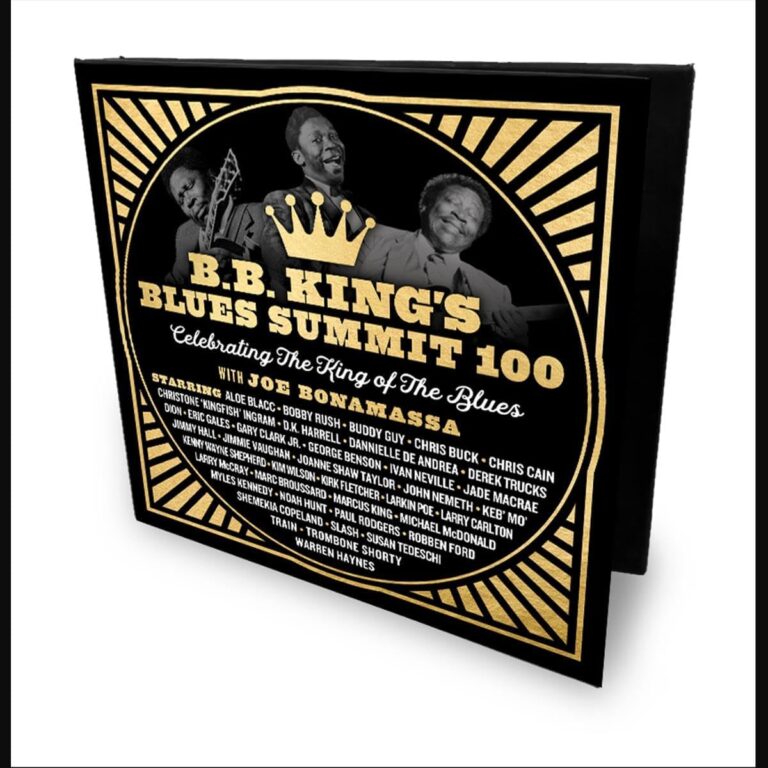For many, Tim Bowness first came in to view as a result of his work with no-man, a collaboration with Steven Wilson. The pair released six albums over a fifteen-year period, the last of which (Schoolyard Ghosts) appeared in 2008. Since that exceptional album was released, Bowness has proven busy, releasing three solo albums and collaborating with numerous artists along the way. Flowers at the scene is nonetheless a particularly special release as it not only sees Bowness reunited with Steven Wilson (who co-produced the album), but also working with a remarkable cast of prog legends including Peter Hammill (Van Der Graaf Generator), Andy Partridge (XTC), Kevin Godley (10cc), Colin Edwin (Porcupine Tree), Jim Matheos (Fates Warning) and David Longdon (Big Big Train).
Flowers at the scene opens with the vast, electronic percussion and synth-scapes of I go deeper, the music reminiscent of Trevor Rabin’s work as a film-score composer. Aided by the sanguine bass of Porcupine Tree’s Colin Edwin and with Tom Atherton providing expansive rhythms, it’s a hypnotic piece of work that provides the perfect setting for Tim’s ethereal voice. A short piece, it sets the scene for the album before staccato strings and a military tattoo drive a cinematic piece of music entitled the train that pulled away forward towards an epic, soaring conclusion. The pace slows for the gorgeous pop of Rainmark, a shimmering piece with a guest spot from Jim Matheos and evocative trumpet from Ian Dixon. A song with a latter-day Floyd feel, particularly in the stately, Gilmour-esque solo, rainmark perfectly underscores Tim’s ability to craft timeless melodies that settle deep beneath the skin. Dylan Howe joins the revolving cast next to provide drums for the gentle not married anymore, a poignant tale of loneliness as the trappings of marriage fall away. It leads nicely to the title track, a richly progressive piece in the vein of mid-period Genesis, which features another superlative contribution from Jim Matheos, not to mention some beautiful, jazzy percussion from Tom Atherton. However, it is the dark, enigmatic it’s the world that sees the album hit a peak as Tim is joined by Peter Hammill, Jim Matheos and Steven Wilson for a track that recalls the taut rhythms and rough-hewn riffs of OSI’s debut album.
With it’s the world having sparked a fire in the studio, the skittering beat of borderline (featuring Dylan Howe on drums and David Longdon on flute / backing vocals) serves to cool things down, with jazzy trumpet and Peter Gabriel-esque backing vocals soothing the fevered brow. Aptly-titled, Ghostlike is another pieced that has a dark Genesis feel, the rolling percussion and eerie subject matter underpinned by a sense of tension generated by the throbbing synths and winding basslines. Another album highlight, the arrangement is rich yet uncluttered and there’s lots of room for Tim’s voice to slip between the layers, beckoning the listener ever deeper into the track’s aching heart, before Brian Hulse’s guitar shoots across the surface like lightning. After so mesmerising a piece, the piano-led the war on me, provides a moment of serenity, the chiming synths reminiscent of no-man, before the U2-esque guitar of killing to survive (also featuring Peter Hammill on backing vocals) pulls the album back into pop territory. With Colin Edwin’s bass anchoring the track and plenty of racing synth lines, it’s a bright, breezy track with a Richard Wright vibe. It leaves the weaving, atmospheric what lies here to bring the album to a close with Sigur Ros-esque guitars (courtesy of Andy Partridge) and harmonised vocals (Kevin Godley). It’s a subtle, elegant finale to an album that covers a huge amount of ground across the course of its eleven tracks.
Guest artists on an album can be something of a double-edged sword. On the one hand they bring their skills and experience; on the other hand, if left unchecked, they can stamp too much personality on their spot. This is manifestly not the case here. The production team of Wilson and Bowness clearly knew exactly what they wanted to achieve throughout the album and the result is a powerful affirmation of Tim Bowness’ skills as a song-writer. As with no-man, his ability to imbue the simplest of lines with depth and poignancy remains unparalleled and the lush musical backdrop that he and his guests create stands as some of his best work to date. An essential album for fans of progressive music, flowers at the scene is an emotionally powerful, musically beautiful journey across the landscape of Tim Bowness’ imagination and is destined to be hailed as a classic in years to come. 9.5




